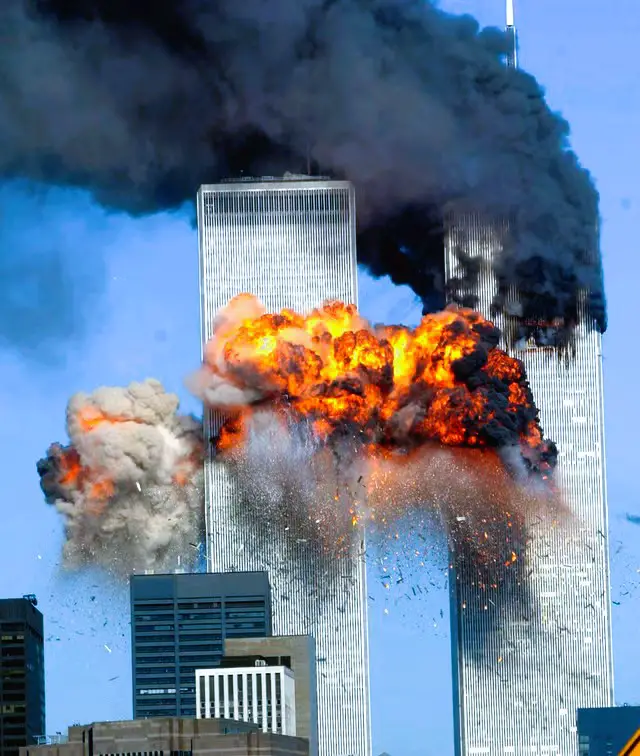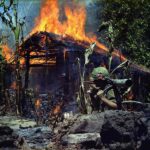The 9/11 terrorist attacks were a series of four coordinated suicide attacks by the terrorist group al-Qaeda against the United States on the morning of Tuesday, September 11, 2001. The attacks resulted in the deaths of 2,977 victims, making it one of the deadliest terrorist acts in world history. 9/11 meaning, September 11, 2001
The Prelude to the Attacks
Political Climate Before 9/11
The political climate before the attacks was tense, with increasing hostilities between the Western world and Islamist groups. Al-Qaeda, led by Osama bin Laden, opposed the U.S. foreign policies, particularly its support for Israel and presence in the Middle East.
The Perpetrators and Their Motivations
Al-Qaeda’s motivations for orchestrating the 9/11 attacks were multifaceted, deeply embedded in a blend of ideological, religious, and political discontent. The extremist group, led by Osama bin Laden, sought to broadcast their dissent against perceived injustices by targeting the United States, whom they viewed as the principal adversary of Islam. Their objective was not only to cause substantial harm and destruction but also to garner global attention to their cause, challenging U.S. foreign policies, particularly its support for Israel and its military presence in the Middle East. Through these attacks, Al-Qaeda intended to provoke a broad reevaluation of American involvement in Islamic nations, striving to position themselves as defenders of the Muslim world against Western domination.
The Day of the Attacks
9/11 Terrorist Attacks Timeline of Events
I hijacked the timeline: The catastrophic events of September 11, 2001, commenced with the hijacking of four commercial aeroplanes by terrorists. Two of these planes were devastatingly crashed into the Twin Towers of the World Trade Center in New York City, symbolizing not only a massive loss of life and destruction but also an attack on global finance and American sovereignty. A third plane struck the Pentagon in Arlington, Virginia, further deepening the tragedy and national trauma. The fourth plane, Flight 93, met its end in a Pennsylvania field as passengers heroically fought the hijackers, preventing another intended attack. This series of coordinated terrorist acts resulted in unprecedented casualties and a profound impact on the United States and the world.
World Trade Center
The destruction of the World Trade Center in the 9/11 attacks represented more than just the physical collapse of two iconic skyscrapers; it was a deliberate strike against the symbols of global finance and American national pride. The immediate and catastrophic collapse of the towers not only wrought unparalleled devastation and loss of life but also sent shockwaves through the international community, challenging the notions of security and economic stability. This event marked a pivotal historical moment, reshaping policies, perceptions, and the global discourse on terrorism and security.
Pentagon Attack
The attack on the Pentagon, the nerve centre of the United States Department of Defense, underscored the audacity and strategic intent of the 9/11 terrorists to undermine American military might. This strike not only inflicted significant damage on the physical structure but also symbolized a direct challenge to the U.S. defence apparatus, highlighting the attackers’ ability to penetrate deeply into the very core of American security infrastructure. The impact resonated far beyond the immediate loss and destruction, raising profound questions about national security and the preparedness of the most powerful country in the world to defend itself against unconventional threats.
Flight 93
The crash of Flight 93 in Pennsylvania, resulting from the courageous actions of its passengers, exemplified extraordinary bravery in the face of imminent death, preventing further catastrophe by thwarting the hijackers’ plan to target what is believed to have been a significant location in Washington, D.C. This act of bravery not only saved countless lives but also served as a beacon of resilience and heroism, illustrating the profound impact individuals can have even in the darkest moments. The legacy of Flight 93’s passengers remains a powerful testament to the human spirit’s capacity to confront and counter acts of terror with selfless courage.
Immediate Impact
Casualties and Loss
The immediate loss of life, including 343 firefighters and 72 law enforcement officers, marked one of the darkest days in U.S. history, leaving a permanent scar on the American psyche.
Economic Fallout
The attacks caused significant economic turmoil, leading to billions of dollars in damage and loss, affecting global markets and leading to a downturn in the world economy, including:-
- Physical Damage: Estimates of the physical damage to the World Trade Center and surrounding areas range into the billions of dollars. The National Institute of Standards and Technology (NIST) estimated direct costs from the destruction at the World Trade Center site to be about $10 billion.
- Insurance Claims: The Insurance Information Institute reports that the insured losses due to the 9/11 attacks were about $40 billion in 2001 dollars, which would be much higher when adjusted for inflation. This makes it one of the most significant insured events in history.
- Airline Industry Losses: The airline industry suffered significant financial losses due to immediate groundings and a long-term decrease in travel demand. The $5 billion figure refers to an immediate aid package approved by Congress, with broader industry losses estimated to be much higher.
- Economic Impact: The immediate aftermath of the U.S. economy included significant job losses, particularly in the airline and tourism industries, and a temporary slowdown in economic growth, contributing to a recession. The broader economic effects extended globally, affecting financial markets, trade, and investment flows, underscoring the profound attacks and pervasive economic impact.
The Aftermath and Global Response
U.S. and Global Security Measures
In response to the 9/11 attacks, the United States, along with nations around the globe, significantly revamped their security protocols to address the newfound vulnerabilities exposed by the events. This overhaul included establishing the Department of Homeland Security (DHS) in November 2002, an agency created to consolidate various federal agencies under one roof with the primary mission of safeguarding the U.S. against terrorism and enhancing security. Alongside, the U.S. Congress passed the Uniting and Strengthening America by Providing Appropriate Tools Required to Intercept and Obstruct Terrorism Act, better known as the PATRIOT Act, in October 2001. This legislation expanded the abilities of law enforcement and intelligence agencies to monitor and detain suspected terrorists, aiming to prevent future attacks. These measures marked a significant shift in the approach towards national and international security, reflecting an era where terrorism became a central concern in policy and public life.
The War on Terror
Following the 9/11 attacks, the United States initiated the War on Terror, a global campaign aimed at eradicating terrorism, particularly the networks of al-Qaeda and their allies. A critical early action in this campaign was the invasion of Afghanistan in October 2001 to dismantle al-Qaeda and remove the Taliban from power, as they had harboured and supported al-Qaeda operatives, including Osama bin Laden. This marked a significant shift in international relations and military strategies as the U.S. and its allies embarked on a prolonged engagement in Afghanistan, which became the longest war in American history. The War on Terror expanded to include various military, legislative, and diplomatic efforts worldwide, profoundly affecting global politics, security policies, and international cooperation in the fight against terrorism.
Long-term Effects
On International Relations
The 9/11 attacks catalyzed a transformation in global alliances and international relations, fostering an unprecedented level of cooperation among nations in the realms of security and counterterrorism. Countries around the world rallied in solidarity with the United States, sharing intelligence, coordinating law enforcement efforts, and undertaking military operations against terrorist groups. This surge in collaboration is aimed at preventing future terrorist incidents, enhancing global security infrastructure, and disrupting terrorism financing and communication networks.
However, this period also witnessed growing tensions, particularly related to the perception of U.S. unilateralism in specific actions and decisions. Notably, the invasion of Iraq in 2003, justified by the U.S. administration under the aegis of the War on Terror, was met with scepticism and opposition from some allies and international observers, who questioned its legitimacy and the strategy behind it. These dynamics highlighted the complexities of balancing national security interests with global diplomatic relations, underscoring the enduring impact of the 9/11 attacks on international politics and security strategies.
Impact on Muslim Communities
In the aftermath of the 9/11 attacks, Muslim communities across the globe found themselves under increased scrutiny and subjected to widespread discrimination. This period saw a significant rise in Islamophobia, fueled by misconceptions and generalizations that unfairly associated Islam and its followers with terrorism. Such prejudice not only manifested in social stigmatization and verbal harassment but also in more severe forms, including hate crimes, profiling, and discriminatory policies targeting Muslims. The consequences for intercultural relations were profound, as these developments deepened divisions and mistrust between communities, complicating efforts toward mutual understanding and respect. This challenging environment underscored the need for dialogue and education to combat stereotypes and foster an atmosphere of inclusivity and tolerance.
Changes in National Policies
Nations worldwide revised their foreign and security policies, emphasizing counterterrorism and intelligence sharing, affecting civil liberties and privacy.
911 Photos,
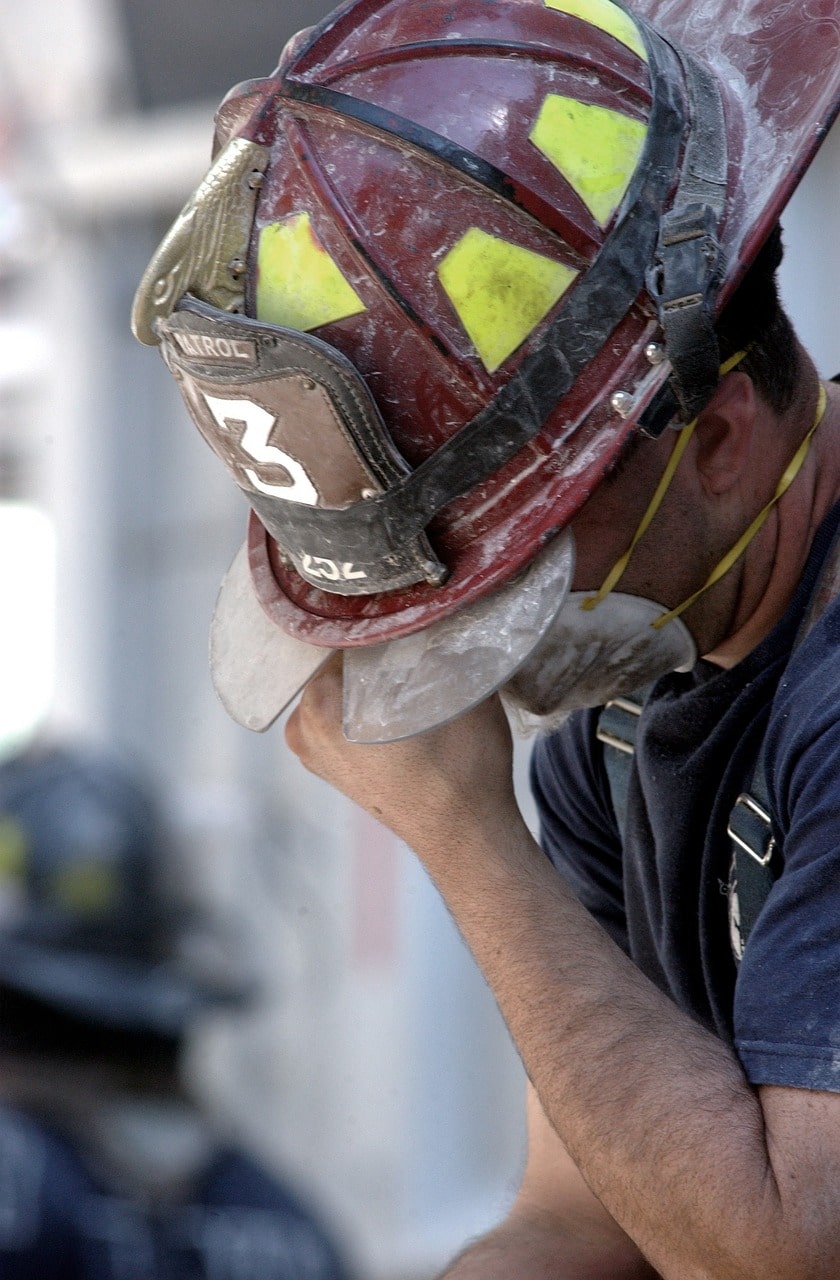
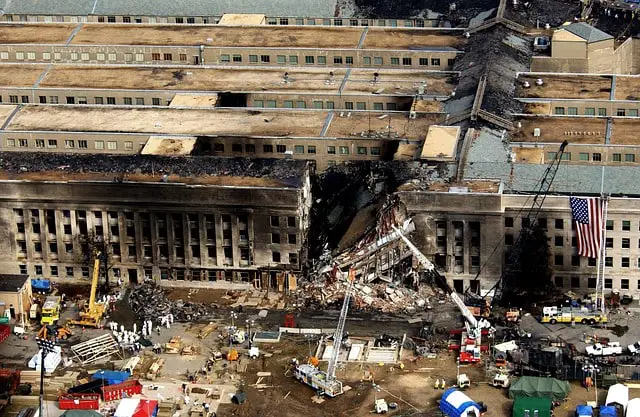
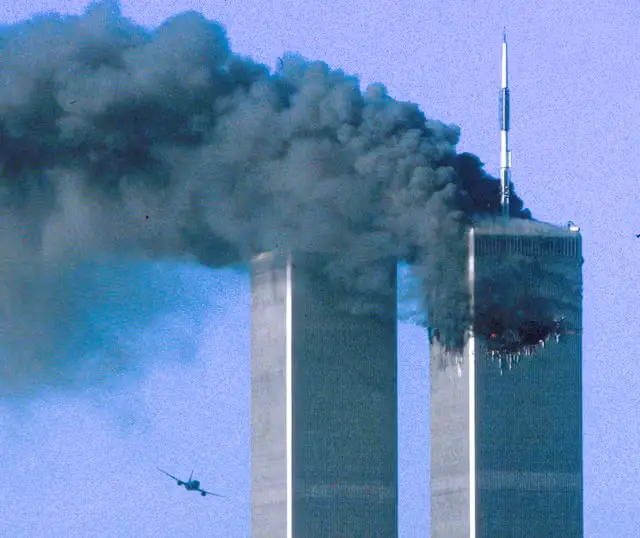
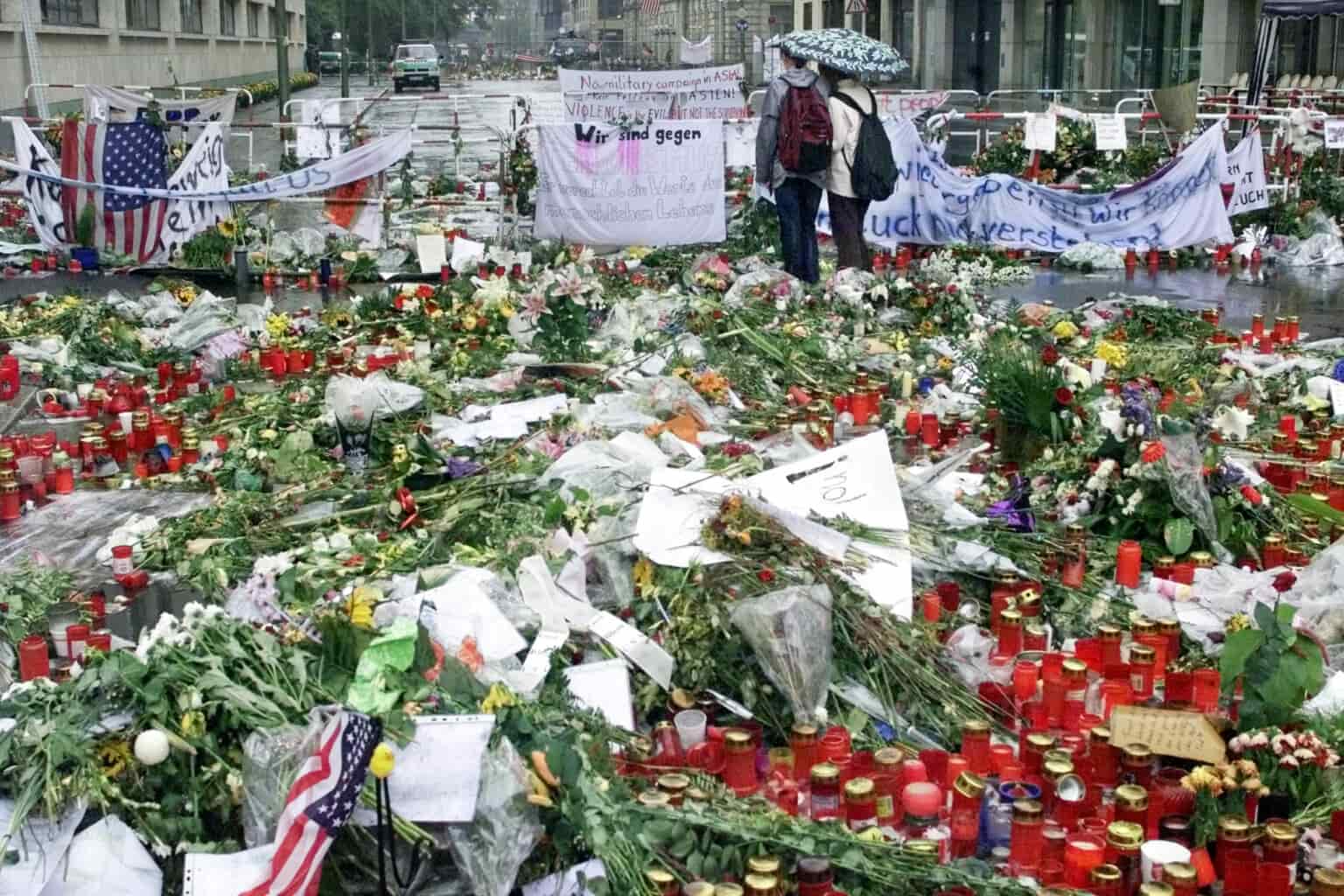
The National September 11 Memorial & Museum in New York City and other memorials worldwide serve as places of reflection, remembrance, and education about the impacts of terrorism.
9/11 Conspiracy Theories Regarding American Involvement in the Attacks
Allegations that the U.S. government was involved in the 9/11 attacks to justify its military presence in the Middle East and Asia, including efforts to counter China’s emerging power, are part of a spectrum of conspiracy theories that have circulated since the events. The aftermath of 9/11 terrorist attacks did lead to increased U.S. involvement in many countries, notably in Afghanistan and Iraq war , with the stated goals of dismantling terrorist networks and spreading democracy. This period also saw the U.S. engaging in complex diplomatic and military operations across financial benefits, i.e. Oil and Gas and other minerals in the region. Critics argue that these actions sometimes contribute to instability and conflicts without adequately addressing the root causes of terrorism or promoting sustainable peace and development. The Arab Spring, a series of anti-government protests and uprisings across the Arab world in 2011, was primarily driven by local factors, including dissatisfaction with authoritarian governance, corruption, and economic stagnation, rather than direct foreign intervention. It’s crucial to distinguish between legitimate geopolitical strategy discussions and unfounded conspiracy theories. While it’s valid to critique and analyze U.S. foreign policy and its implications, such analysis should be based on factual, evidence-backed evaluations rather than speculative or unsupported allegations.
However, The United States completed its military withdrawal from Afghanistan on August 31, 2021, ending nearly two decades of military presence that began in October 2001 following the 9/11 terrorist attacks. This withdrawal marked the conclusion of America’s longest war, a period characterized by intense conflict, criticism and financial benefits, and a campaign against terrorism. The exit was part of an agreement with the Taliban aimed at bringing an end to the prolonged conflict. However, the withdrawal was rapidly followed by the Taliban’s swift recapture of control over Afghanistan, including the capital city of Kabul, leading to widespread concern about the future of the country’s governance, human rights, particularly those of women and girls, and the potential for Afghanistan to become a haven for terrorist organizations once again.
FAQs
1. What terrorist group attacked on 9/11?
Answer. The terrorist group responsible for the attacks on September 11, 2001, was al-Qaeda, led by Osama bin Laden.
2. Is 9/11 the deadliest terrorist attack?
Yes, 9/11 is widely regarded as one of the deadliest terrorist attacks in history due to its scale and the number of casualties, with nearly 3,000 people killed in the attacks on the World Trade Center, the Pentagon, and the crash of Flight 93.
3. What is the significance of the National September 11 Memorial & Museum?
The National September 11 Memorial & Museum holds significant importance as a place of remembrance, honoring the victims of the attacks and preserving the memory of the tragedy for future generations through exhibits and educational programs.
4. How did 9/11 affect U.S. foreign policy in the Middle East?
9/11 had a significant impact on U.S. foreign policy in the Middle East, resulting in increased military involvement, regime changes, and efforts to combat terrorism, albeit with controversial consequences.
5. Was 9/11 the worst terrorist attack
Yes, 9/11 is widely considered one of the worst terrorist attacks in history due to its scale, with nearly 3,000 casualties and its profound impact on global security and politics.

